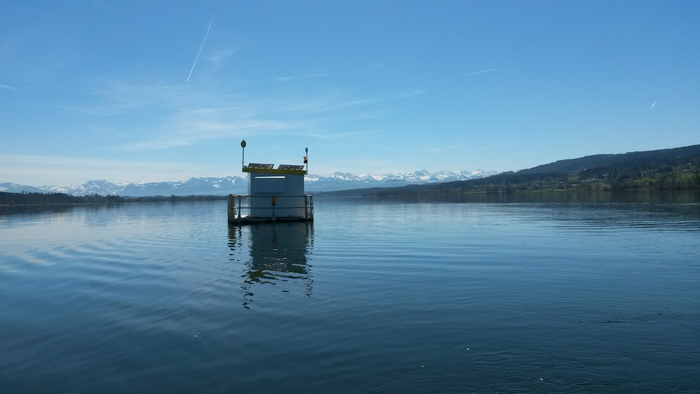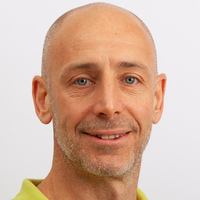Staff
Francesco Pomati


Dr. Francesco Pomati
About Me
I graduated at the University of Milan (Italy) in Ecology and obtained a PhD in Microbiology at the University of New South Wales (Sydney, Australia). I have worked on the molecular and ecological basis for the production of cyanobacterial toxins, the environmental risk assessment of water-borne micropollutants, and the environmental controls and consequences of lake phytoplankton dynamics.
I currently study the drivers and mechanisms of phytoplankton community change across scales (from local to regional, from hours to decades) using a range of in situ monitoring data and advanced analysis approaches, and I test assumptions and hypotheses in community ecology, plankton ecology and microbial evolution.
Research topics:
Phytoplankton, lakes, biodiversity, community dynamics, individual-level traits, species interactions, eutrophication, climate change, underwater imaging, machine learning, flow-cytometry, automated monitoring, algal blooms, cyanobacteria, micropollutants, natural toxins.
For more information, visit the Phytoplankton Ecology lab, the Aquascope project page, and the CyanoBloom project page.
Education:
August 2004. Doctor of Philosophy (PhD), School of Microbiology and Immunology, The University of New South Wales, Sydney, NSW, Australia.
July 1997. Degree in Biological Sciences (BSc in Biology, MSc in Ecology), Faculty of Mathematical, Physical and Natural Sciences, The University of Milan, Italy.
Professional experience:
September 2011 - present. Group Leader, Department of Aquatic Ecology, Eawag: Swiss Federal Institute of Aquatic Science and Technology, Überlandstrasse 133, 8600 Dübendorf, Switzerland.
September 2012 - present. Lecturer, ETH-Zürich: Swiss Federal Institute of Technology in Zurich, Institute of Integrative Biology, Zürich, Switzerland.
April-August 2017. Sabbatical Visiting Scientist, University of California San Diego. Section Ecology, Behavior & Evolution, and Scripps Institution of Oceanography. La Jolla, CA, USA.
October 2008 - September 2011. Post-doctoral researcher, Department of Aquatic Ecology, Eawag, Seestrasse 79, 6047 Kastanienbaum, Switzerland.
August 2008 - October 2008. Marie Curie Fellow, Mario Negri Institute for Pharmacological Research, Department of Environmental Health, Via La Masa 19, Milano, Italy.
July 2005 - August 2008. Vice-chancellor’s post-doctoral research fellow, School of Biotechnology and Biomolecular Sciences, University of New South Wales, 2052 Sydney, Australia.
January 2004 - July 2005. Post-doctoral researcher, Department of Biotechnology and Molecular Sciences, University of Insubria, Via J.H. Dunant 3, 21100 Varese, Italy.
Publications:
For my publication list, please go here (Google Scholar)
“The mystery of life isn't a problem to solve, but a reality to experience.”
(Frank Herbert, Dune)
[[ element.title ]]
[[ element.title ]]
[[ element.title ]]
[[ element.title ]]
[[ element.title ]]
Address
| E-Mail: | francesco.pomati@cluttereawag.ch |
| Phone: | +41 58 765 5410 |
| Fax: | +41 58 765 5802 |
| Address: | Eawag
Überlandstrasse 133 8600 Dübendorf |
| Office: | LA H60 |
[[ element.title ]]
[[ element.title ]]
Expert on
[[ element.title ]]
Research Group
For more information about our research group, please visit the Phytoplankton Ecology lab, Aquascope and CyanoBloom
Masters students and interns are always welcome - join our group!
[[ element.title ]]
Focalpoints
I have broad interests in microbial community ecology and evolution. I aim at understanding the effects of (human-induced) environmental change on plankton biodiversity, and the consequences of biodiversity change for aquatic ecosystem processes. This includes the mechanisms triggering toxic cyanobacterial blooms.
I approach community ecology from a trait-based perspective to link individual and population responses to community and ecosystem level interactions.
To achieve the above goals, I apply or develop new tools for studying microbial communities in their natural environment.
